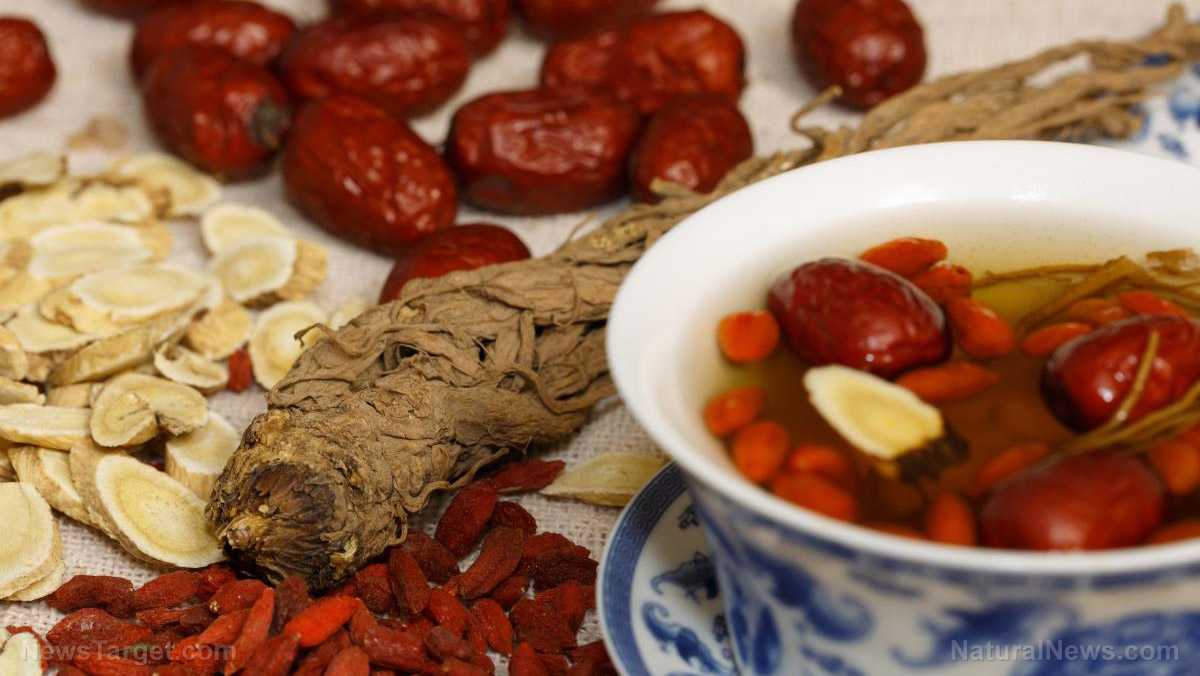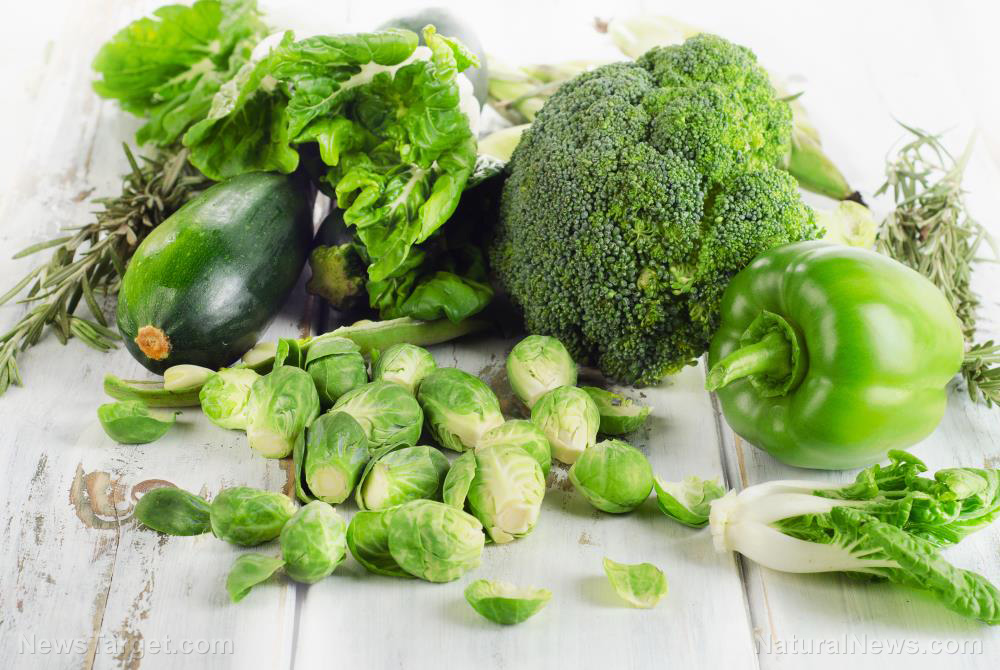What can TCM do against ulcerative colitis?
10/23/2019 / By Evangelyn Rodriguez

Ulcerative colitis is a type of inflammatory bowel disease that causes sores along the intestinal tract. This disease can be debilitating, and if left untreated, it can also lead to life-threatening complications such as severe bleeding and colon cancer. Today, ulcerative colitis remains without a cure, and relief from its symptoms is solely dependent on prompt and proper treatment. While conventional treatment includes the use of anti-inflammatory drugs, alternatives like traditional Chinese medicine (TCM) are also available.
In an article published in the Chinese Journal of Natural Medicines, researchers from Shanghai University of Traditional Chinese Medicine reviewed the different anti-ulcerative compounds found in various herbs used in TCM. They also discussed their mechanisms of action, which mainly revolve around reducing or preventing inflammation and oxidative stress.
Various compounds found in TCM can combat ulcerative colitis
Ulcerative colitis (UC) is a chronic disease that causes long-lasting inflammation and affects the colon. According to statistics, the incidence of UC is rising worldwide. The pathogenesis of UC is multifactorial and involves genetic predisposition, epithelial barrier defects, dysregulated immune responses, and environmental factors.
Today, modern drugs like 5-aminosalicylic acid, steroids, and immunosuppressants are used to treat UC. However, long-term use of these drugs can cause adverse effects, such as liver and kidney toxicity, drug resistance, and allergic reactions. Because of these consequences, the use of natural medicines as alternative treatment is now being explored.

|
Discover how to prevent and reverse heart disease (and other cardio related events) with this free ebook: Written by popular Natural News writer Vicki Batt, this book includes everything you need to know about preventing heart disease, reversing hypertension, and nurturing your cardiac health without medication. Learn More. |
Several studies have reported that TCM herbs have great potential in treating UC. These plant-based medicines are able to reduce the recurrence rate of UC and cause very few side effects. The active compounds present in many TCM with anti-UC effects are mainly flavonoids, acids, terpenoids, phenols, alkaloids, quinones, and bile acids.
According to in vitro and in vivo studies, the biological activities of these phytochemicals involve preventing inflammation and oxidative stress via the following ways:
- Increasing the levels of anti-inflammatory signaling molecules like interleukin 4 (IL-4), interleukin 10 (IL-10), and superoxide dismutase (SOD)
- Decreasing the levels of pro-inflammatory signaling molecules like tumor necrotic factor-alpha (TNF-a), interleukin 1 beta (IL-1B), interleukin 6 (IL-6), interleukin 8 (IL-8), nuclear factor kappa-light-chain-enhancer of activated B cells (NF-kB), and nitric oxide (NO)
- Reducing the activity of white blood cell-derived inflammatory enzyme MPO, the inflammatory marker malondialdehyde (MDA), type II interferon gamma (IFN-y), and inducible nitric oxide synthase
Because of the potency of these compounds and their anti-inflammatory activities, the researchers believe that they can be developed into effective drugs for the treatment of UC. They also hope that their review could serve as a valuable reference for future studies on anti-UC compounds from natural medicines.
Herbal remedies for ulcerative colitis
Today, natural ways to manage inflammatory bowel diseases (IBD) like ulcerative colitis are available to patients dissatisfied with conventional medicine. Some of the most commonly used alternative treatments for IBD are acupuncture, moxibustion, and probiotics. Medicinal herbs are also used either in combination with these therapies or as standalone medicine to reduce chronic inflammation. Examples of herbs used to treat UC are:
- Aloe vera — Aloe vera gel has anti-inflammatory properties and is effective against mild to moderate UC.
- Blond plantain — Blond plantain (Plantago ovata) is a shrub-like herb that contains a mucilaginous fiber called psyllium that works in both the small and large intestines. Psyllium can reduce symptoms of UC and prolong remission.
- Indian frankincense — The Ayurvedic herb Indian frankincense (Boswellia serrata) reduces inflammation in the intestines and causes very few side effects.
- Licorice — This TCM has immune-modulatory and adaptogenic properties which help stop the pathogenesis of UC. (Related: Ulcerative colitis can be treated naturally with licorice.)
- Slippery elm — Derived from the bark of the Ulmus rubra tree, this supplement is effective against gastrointestinal (GI) complaints and has antioxidant activities.
- Tormentil — The root of the tormentil herb is traditionally used to treat stomach complaints. Due to its antioxidative properties, tormentil is often used as complementary therapy for chronic UC.
- Turmeric — Curcumin, the active component of turmeric (Curcuma longa), is known for its anti-inflammatory properties. Supplementation with curcumin reduces the relapse rate of UC in controlled trials.
- Wheatgrass — Wheatgrass (Triticum aestivum) juice has long been used as a natural remedy for GI conditions. According to studies, drinking this juice for one month results in significant improvement of UC symptoms.
Herbal medicines have long been used to treat various ailments. While some are already accepted for clinical use, others are still undergoing trials and further evaluation. Medicinal herbs contain many active components that may react or interfere with certain medications. If you wish to use natural medicines, consult with your healthcare provider first to ensure your safety.
Sources include:
Tagged Under: alkaloids, aloe vera, alternative medicine, anti-inflammatory, bile acids, Boswellia, curcumin, disease treatments, fiber, flavonoids, gut health, herbal medicine, Herbs, IBD, immune system, inflammatory bowel diseases, licorice, natural cures, natural medicine, oxidative stress, phenols, phytonutrients, psyllium, quinones, remedies, research, TCM, terpenoids, traditional Chinese medicine, turmeric, ulcerative colitis, wheatgrass


















